Research
Infographic
Recognizing Faculty with Disabilities: Data and Considerations from the Faculty Job Satisfaction Survey
Drawing upon Faculty Job Satisfaction Survey data from 2019 and 2020, this piece examines meaningful differences in perception of the academic workplace between faculty with visible disabilities, invisible disabilities, and no reported disabilities.
Case Study
Supporting the Next Generation of Faculty at Georgia State University
In this partner spotlight, Georgia State University shares how the institution applied its data-driven approach to student success to the faculty experience through the administration and rollout of the Faculty Job Satisfaction Survey.
Webinar
Success After Tenure: Lessons in Engaging Mid-Career Faculty
Based on the 2018 book, Success After Tenure: Supporting Mid-Career Faculty (Stylus), this webinar highlights the impetus behind compiling the volume, as well as the successful practices put in place by COACHE partners at Rochester Institute of Technology.
Browse Resources By Topic
- Career Path
- Faculty Development & Support
- Diversity, Equity, & Inclusion
- Higher Education Leadership
- Recruitment & Retention
- Work Life Balance
Is the Tenure Process Fair? What Faculty Think
Citation:
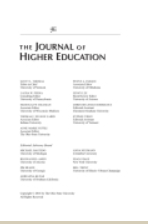
Abstract:
A conceptual framework grounded on procedural justice theory was created to explain how judgments about the fairness of tenure decision-making evolved among faculty who had not yet undergone the review. The framework posits that faculty beliefs about fairness are influenced directly by their workplace experiences and both directly and indirectly by their socio-demographic characteristics.
Structural equation modeling was used to assess the proposed effects with data from 2,247 pre-tenure assistant professors at 21 research universities. The results substantiate the importance of perceived campus and department conditions.
Equitable treatment of junior faculty at the department level and effectiveness of feedback have the strongest relationships with beliefs about the equity of tenure decision-making. An individual’s sense of control during the process of constructing the tenure dossier predicts his or her judgments about the fairness of tenure reviews. Practical suggestions for campus leaders and implications for future research are discussed.
An analysis of job satisfaction among Millennial faculty at southeastern colleges and universities
Citation:
Thesis Type:
DissertationAbstract:
Millennials will dominate the global workplace as the prominent generational cohort by 2020. This projection surfaces considerations for recruitment and succession planning within higher education.
This study investigated how Millennials’ workplace preferences impact faculty job satisfaction. The research inquiry was launched utilizing institutional data from four-year public and private institutions in the Southeast to assess the relationship between overall job satisfaction and mentoring satisfaction, and to compare Millennial faculty job satisfaction to senior generations. The study uses Faculty Job Satisfaction Survey data.
From the analysis of 9,496 faculty responses, the study produced statistically significant outcomes that addressed the research inquiry. The outcome of the investigation signals a strong correlation between the impacts of mentoring satisfaction and the overall job satisfaction of Millennial faculty. Pragmatic talent management and organizational development strategies are recommended to assist institutions in leveraging the power of the multi-generational workforce to attract and retain Millennial faculty.
Effects of generation on tenure-track faculty satisfaction
Citation:
Thesis Type:
DissertationAbstract:
The academy is generationally diversifying as Baby Boomer faculty members move into retirement and younger faculty enter the workforce. Understanding and addressing generational differences is increasingly important, as employees across a broad age range will be working together.
This quantitative study explored the effects of generation on tenure-track faculty job satisfaction. Aside from obtaining a generational snapshot of tenure-track faculty, this study sought to determine if generation could predict job satisfaction indices. Multiple regression analyses were conducted on variables obtained from a pre-existing aggregated Faculty Job Satisfaction Survey dataset. Statistically significant demographic effects emerged in seven job satisfaction indices, but multiple regression results provided little evidence to suggest demographic variables, which have frequently been used to explain differences between groups, are strong predictors of tenure-track faculty satisfaction. These findings raise questions about the credibility of claims by generational practitioners and consultants and signify that more research is needed.
Evidence-Based Faculty Development: The COACHE Research-Practice Partnership
Citation:
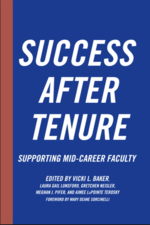
Abstract:
This book brings together leading practitioners and scholars engaged in professional development programming for and research on mid-career faculty members, those tasked with being the next generation of faculty leaders and mentors on their respective campuses, with little to no supports to do so effectively.
The stories, data, and resources shared in this book will provide inspiration—and reality checks—to administrators, faculty developers, and department chairs charged with supporting their faculties as they engage in academic work. Topics include faculty development for formal and informal leadership roles; strategies to support professional growth; teaching and learning as a form of scholarship; and strategies to recruit, retain, and promote underrepresented faculty populations.
While the authors acknowledge that mid-career faculty members face numerous challenges, this collection offers a counter narrative by looking at ways that faculty and/or institutions can assert themselves to find opportunities within challenging contexts.
Gender and Race Differences in Faculty Assessment of Tenure Clarity: The Influence of Departmental Relationships and Practices
Citation:
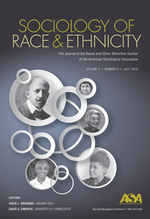
Abstract:
The authors look at how the intersection of gender and race influences pre-tenure faculty members’ perceptions of the clarity of tenure expectations. The authors also seek to identify potential predictors (assessment of mentoring, relationships with peers, feedback on progress toward tenure, and fairness in tenure decision making and evaluation) of perceptions of tenure clarity for four intersectionally defined groups, including historically underrepresented minority women (URMW). The authors use an intersectional perspective and the gendered and racialized organizations’ theoretical lens to interpret the results. The data set comes from the Faculty Job Satisfaction Survey. Findings show that compared with white men, URMW are less satisfied with their relationships with peers and with the fairness in the evaluation of their work. They are also less likely to agree that mentoring is effective, that tenure decisions are fair, and that messages about tenure are consistent.Building a Better Exit Study: A National Effort to Understand Faculty Retention & Turnover
Citation:
Abstract:
In 2016, COACHE partnered with the University of California System to pilot our newest undertaking -- the Faculty Retenion and Exit Survey. This survey is the only multi-institutional study of faculty retention and exit, and examines the costs, conduct, and causes of faculty turnover.
In this webinar, Kiernan Mathews and Todd Benson describe how the survey came to be, and outline some of the initial findings from the pilot study along with some practical recommendations for Academic Affairs administrators.
Success on the Tenure Track: Five Keys to Faculty Job Satisfaction
Citation:
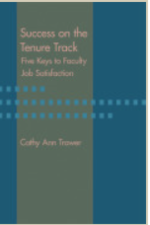
Abstract:
Landing a tenure-track position is no easy task. Achieving tenure is even more difficult. Under what policies and practices do faculty find greater clarity about tenure and experience higher levels of job satisfaction? What makes an institution a great place to work?
In 2005–2006, the Collaborative on Academic Careers in Higher Education surveyed more than 15,000 tenure-track faculty at 200 institutions. The survey was designed around five key themes: tenure clarity, work-life balance, support for research, collegiality, and leadership.
Success on the Tenure Track positions the survey data in the context of actual colleges and universities. Best practices at the highest-rated institutions in the survey—Auburn, Ohio State, North Carolina State, Illinois at Urbana-Champaign, Iowa, Kansas, and North Carolina at Pembroke—give administrators practical, proven advice on increasing employee satisfaction. Additional chapters discuss faculty demographics, trends in employment practices, creating a great workplace for faculty, and the future of tenure.
Data, Leadership, and Catalyzing Culture Change
Citation:
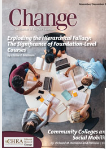
Abstract:
As the national economy has worsened, a large cadre of tenured senior faculty is graying and staying at their institutions. This has left an older set of full professors who began their careers in a different era, an overworked and underappreciated set of associate professors, and a group of assistant professors who are wondering, “What have I gotten myself into?”
By and large, tenure-track faculty want what they have always wanted: clear and reasonable tenure requirements; support for teaching and research; an environment that allows them to juggle responsibilities at work and home; and a set of colleagues to whom they can turn for mentoring, collaborations, intellectual stimulation, and friendship. But several differences between the past and present affect these faculty dramatically.
A New Generation of Faculty: Similar Core Values in a Different World
Citation:
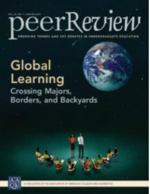
Abstract:
While tenure-track faculty may want the same things as their predecessors, younger Boomers (born 1956-1963) and Gen X faculty live and work in a very different world than older Boomers (born 1946-1955) and Traditionalists (born before 1946). Because of this, Gen Xers, in particular, have been vocal about wanting increased flexibility, greater integration of their work and home lives, more transparency of tenure and promotion processes, a more welcoming, diverse, and supportive workplace/department, and more frequent and helpful feedback about progress.
Benchmark Best Practices: Appreciation & Recognition
Citation:
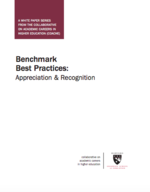
Abstract:
The COACHE surveys of college faculty produce data that are both salient to full-time college faculty and actionable by academic leaders. The survey items are aggregated into 20 benchmarks representing faculty satisfaction. This white paper examines appreciation and recognition for faculty teaching efforts, student advising, scholarly/creative work, service contributions, and outreach.
Focus group research conducted by COACHE showed that while many tenured faculty members feel valued by undergraduate and graduate students, they do not receive much recognition from other faculty and upper-level administrators. The degree to which appreciation/recognition themes appeared in our 2010 study of tenured faculty far surpassed their appearance in our pre-tenure faculty research. In our recent study, tenured faculty felt that extramural service that increases the reputation of their colleges, while expected of them, is not recognized and goes unrewarded. This gap between expectations and appreciation discouraged many faculty from serving their institutions in this way.
To stay or not to stay: retention of Asian international faculty in STEM fields
Citation:
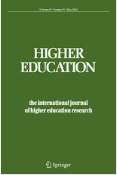
Abstract:
The present study identifies characteristics of individuals and work settings that influence Asian international faculty members’ intentions to continue their employment in US research universities. Given the demand for researchers in science, technology, engineering and mathematics fields (STEM), the higher rate of turnover among untenured faculty, and the replacement costs associated with turnover in STEM, the sample is limited to assistant professors employed in these areas. Multinomial regression analyses identified variables that “pull” and “push” uncertain faculty toward intentions to stay and leave their current institutions. The results suggest that faculty who are more satisfied with time available for research and those who express stronger organizational commitment are more likely to say they will stay. Those dissatisfied with the fairness of work evaluations and those who believe tenure decisions are not merit-based are more likely to say they will leave.
The workplace satisfaction of newly-tenured faculty members at research universities
Citation:
Thesis Type:
DissertationAbstract:
If faculty are dissatisfied with their work, colleges and universities can experience educational and organizational repercussions that include contentious departmental climates and stagnant work productivity. The dissatisfaction of newly tenured faculty, who face unique transitional circumstances, could have particularly negative consequences.
This dissertation uses Faculty Job Satisfaction Survey data, along with interviews of 12 newly tenured faculty members, to estimate the predictors of newly tenured faculty workplace satisfaction. The results indicate that newly-tenured faculty tend to be satisfied with their institutions when they have communicative senior leaders, fair and reasonable compensation, and a sense of belonging in their departments. At the departmental level, newly-tenured faculty are more likely to be satisfied when norms and behaviors promote inclusion and diversity, colleagues are respectful, and departmental leaders are supportive. The results of this study can stimulate thinking about new policies and practices to maximize the satisfaction and performance of faculty during this transformative period in their careers.
Senior Faculty Vitality
Citation:

Abstract:
Academic institutions and faculty are pressured today from multiple directions as the federal government demands greater accountability, states cut budgets, tuition payers demand more, granting agencies become more selective and trustees apply more pressure and scrutinize more closely. In this context, this report examines the workplace satisfaction of senior faculty members at seven public research universities.
The vitality, productivity and satisfaction of senior faculty is extremely important to colleges and universities in fulfilling their missions and achieving their goals. One-quarter of senior faculty surveyed feel that the single most important thing colleges and universities can do to improve the workplace revolves around leadership stability and consistency of mission, focus, and priorities. Sixteen percent feel that increased salaries are most important and 14 percent would like more research support.
New Challenges, New Priorities: The Experience of Generation X Faculty
Citation:
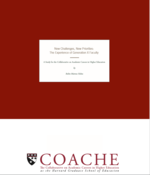
Abstract:
This study explores how Generation X (born 1964-1980) faculty are approaching their jobs, long-term careers, and work-life balance, and examines if and how the generational “clashes” reportedly arising in the workforce are being manifested in the academic environment. The study was designed to complement and build upon the coache Tenure-Track Faculty Job Satisfaction Survey by using qualitative interviews to explore many of the same themes in greater depth with a limited number of participants, and provide insights into how those themes play out in the day-to-day lives of individual faculty members. While the survey provides a snapshot of how tenure-track faculty are feeling about their current job situation, this study examines the broader context of faculty members’ long-term careers, and the interplay between their work and non-work lives.
Perspectives on What Pre-Tenure Faculty Want and What Six Research Universities Provide
Citation:
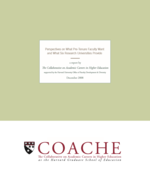
Abstract:
COACHE released this report in conjunction with the Harvard University Office for Faculty Diversity & Development. It is the result of many months of mining and synthesizing the information collected from nearly 80 interviews with pre-tenure and tenured faculty, department chairs, and senior administrators at six COACHE member campuses. Much of what is contained in this report may be all too familiar to an experienced academic administrator, but it is the first time the experiences of early-career faculty and the faculty development policies of top-tier research universities have been assembled in one place.- «
- 4 of 4
Gender Differences in Faculty Member Job Satisfaction: Equity Forestalled?
Citation:

Abstract:
Guided by Hagedorn’s (2000) theory of faculty job satisfaction, mindful of social and organizational structures of higher education, and acknowledging recent changes in the academic labor market, this study examines satisfaction for approximately 30,000 tenured and tenure-track faculty members in 100 US colleges and universities. Findings revealed similarity between female and male faculty members in some aspects of work satisfaction, but difference in other areas in which women reported lower satisfaction. Findings also revealed that perceptions of department fit, recognition, work role balance, and mentoring are more important to women faculty’s satisfaction than male peers. These findings have implications for policy and practice.
To stay or not to stay: retention of Asian international faculty in STEM fields
Citation:

Abstract:
The present study identifies characteristics of individuals and work settings that influence Asian international faculty members’ intentions to continue their employment in US research universities. Given the demand for researchers in science, technology, engineering and mathematics fields (STEM), the higher rate of turnover among untenured faculty, and the replacement costs associated with turnover in STEM, the sample is limited to assistant professors employed in these areas. Multinomial regression analyses identified variables that “pull” and “push” uncertain faculty toward intentions to stay and leave their current institutions. The results suggest that faculty who are more satisfied with time available for research and those who express stronger organizational commitment are more likely to say they will stay. Those dissatisfied with the fairness of work evaluations and those who believe tenure decisions are not merit-based are more likely to say they will leave.
Is the Tenure Process Fair? What Faculty Think
Citation:

Abstract:
A conceptual framework grounded on procedural justice theory was created to explain how judgments about the fairness of tenure decision-making evolved among faculty who had not yet undergone the review. The framework posits that faculty beliefs about fairness are influenced directly by their workplace experiences and both directly and indirectly by their socio-demographic characteristics.
Structural equation modeling was used to assess the proposed effects with data from 2,247 pre-tenure assistant professors at 21 research universities. The results substantiate the importance of perceived campus and department conditions.
Equitable treatment of junior faculty at the department level and effectiveness of feedback have the strongest relationships with beliefs about the equity of tenure decision-making. An individual’s sense of control during the process of constructing the tenure dossier predicts his or her judgments about the fairness of tenure reviews. Practical suggestions for campus leaders and implications for future research are discussed.
Browse Resources by Faculty Type
Gender and Race Differences in Faculty Assessment of Tenure Clarity: The Influence of Departmental Relationships and Practices
Citation:

Abstract:
The authors look at how the intersection of gender and race influences pre-tenure faculty members’ perceptions of the clarity of tenure expectations. The authors also seek to identify potential predictors (assessment of mentoring, relationships with peers, feedback on progress toward tenure, and fairness in tenure decision making and evaluation) of perceptions of tenure clarity for four intersectionally defined groups, including historically underrepresented minority women (URMW). The authors use an intersectional perspective and the gendered and racialized organizations’ theoretical lens to interpret the results. The data set comes from the Faculty Job Satisfaction Survey. Findings show that compared with white men, URMW are less satisfied with their relationships with peers and with the fairness in the evaluation of their work. They are also less likely to agree that mentoring is effective, that tenure decisions are fair, and that messages about tenure are consistent.Reasonableness and clarity of tenure expectations: Gender and race differences in faculty perceptions.
Citation:
Abstract:
This dissertation studies how higher education policies and practices can affect faculty retention and proposes changes that higher education institutions need to make to retain their faculty. The first manuscript investigates the reasonableness of tenure expectations as it relates to work-life balance, the second explores whether women’s and men’s assessments of tenure-related departmental practices influence their perceptions of clarity of tenure expectations, and the third looks at how the intersection of gender and race influences faculty perceptions of clarity of tenure expectations. The dissertation uses Faculty Job Satisfaction Survey data from a sample of 2,438 tenure-track assistant professors at research universities.
Examining faculty satisfaction, productivity, and collegiality in higher education: Contemporary contexts and modern methods
Citation:
Thesis Type:
DissertationAbstract:
In response to discourse surrounding faculty accountability and diversity, this dissertation describes three studies of faculty satisfaction, productivity, and collegiality in higher education. The studies employed advanced quantitative methods to analyze and interpret faculty data at four-year colleges and universities.
The first study revealed a strong, positive, and highly significant relationship between campus racial climate and faculty satisfaction at the individual level, regardless of gender, race/ethnicity, and tenure status. The second study identified five classes of faculty productivity with respect to gender, race, institutional type, and levels of faculty satisfaction.
The third study examined the relationships among faculty collegiality, job satisfaction, and turnover intentions. Significant findings indicated that faculty collegiality was strongly and positively related to job satisfaction and negatively related to turnover intentions, regardless of gender and race/ethnicity. Women faculty and faculty of color indicated lower levels of collegiality, and faculty of color reported lower job satisfaction and higher turnover intentions.
Beyond Teaching and Research: Faculty Perceptions of Service Roles at Research Universities
Citation:
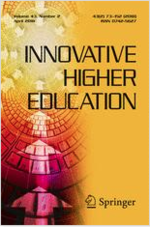
Abstract:
Faculty members in higher education institutions frequently have the responsibility of providing service activities to their institutions, professional societies, and external communities. This responsibility, however, generally carries little reward in the workplace and does not play a major role in promotion criteria. This study drew upon a sample of 4,400 research university faculty members surveyed through the Faculty Job Satisfaction Survey to explore their satisfaction with service roles by academic rank. Findings showed that mid-career faculty members at the associate professor rank were significantly less satisfied with their service functions, including workload, equity, work balance, recognition, and institutional support, when compared with both assistant and full professors.
Understanding the changing faculty workforce in higher education: A comparison of non-tenure track and tenure line experiences
Citation:

Abstract:
Non-tenure track faculty are a growing majority in American higher education, but research examining their work lives is limited. Moreover, the theoretical frameworks commonly used by scholars have been critiqued for reliance on ideologically charged assumptions. Using a conceptual model developed from Hackman and Oldham’s (1980) Job Characteristics Model (JCM) and prior research on faculty workplace experiences, this study considers the extent to which full-time non-tenure track and tenure line faculty share a professionalized approach to their jobs, working conditions, and how this is associated with their organizational commitment.
Satisfaction with resources, rewards, autonomy and feedback had a significant positive relationship with odds of organizational commitment for all faculty groups. Overall, the results suggest being removed from the tenure track is not associated with faculty viewing their jobs in a substantially different way than those in tenure line positions, which underscores the importance of conceptualizing full-time faculty work as an integrated whole.
Is the Tenure Process Fair? What Faculty Think
Citation:

Abstract:
A conceptual framework grounded on procedural justice theory was created to explain how judgments about the fairness of tenure decision-making evolved among faculty who had not yet undergone the review. The framework posits that faculty beliefs about fairness are influenced directly by their workplace experiences and both directly and indirectly by their socio-demographic characteristics.
Structural equation modeling was used to assess the proposed effects with data from 2,247 pre-tenure assistant professors at 21 research universities. The results substantiate the importance of perceived campus and department conditions.
Equitable treatment of junior faculty at the department level and effectiveness of feedback have the strongest relationships with beliefs about the equity of tenure decision-making. An individual’s sense of control during the process of constructing the tenure dossier predicts his or her judgments about the fairness of tenure reviews. Practical suggestions for campus leaders and implications for future research are discussed.
Socrates, Thoreau and the Status Quo
Citation:

Abstract:
Universities are structured in a way that makes it almost impossible to deviate from the status quo, and the market gives them little incentive to change. Cathy A. Trower argues for a new model of higher education in which the focus is on inventing the future rather than on maintaining the traditions of the past, tenure decisions are made based on teaching and community involvement as well as research, and shared governance leads to constructive decision-making.
- «
- 5 of 5
Personal and Institutional Predictors of Work-Life Balance among Women and Men Faculty of Color
Citation:
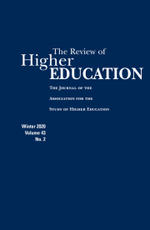
Abstract:
This study examines predictors of perceived work-life balance among women and men faculty of color using data from the Collaborative on Academic Careers in Higher Education (COACHE). Asian American men faculty report higher perceived work-life balance, while African American women faculty report lower perceived work-life balance as compared to other faculty members. Findings from multivariate analyses show that the strongest, most consistent positive predictor of perceived work-life balance was the faculty perception that the institution does what it can to make personal/family obligations and an academic career compatible. The findings offer important implications for institutional and departmental climate and policy.The possibility of promotion: How race and gender predict promotion clarity for associate professors
Citation:
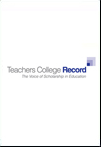
Abstract:
Past studies have strongly suggested that equity issues affect advancement through the academic pipeline. This study uses cross-institutional results from the 2010 through 2012 Faculty Job Satisfaction Surveys to offer analysis and potential solutions for the problem.
The study asks whether cultural taxation in the form of heavy service and advising—often associated with underrepresented minority faculty and women faculty—is a factor in advancement through the academic pipeline, and also examines the influence of ideal-worker norms and work/family demands on perceptions of promotion clarity. The analysis suggests that the factors associated with lack of clarity about promotion are more structural than individual.
Gender and Race Differences in Faculty Assessment of Tenure Clarity: The Influence of Departmental Relationships and Practices
Citation:

Abstract:
The authors look at how the intersection of gender and race influences pre-tenure faculty members’ perceptions of the clarity of tenure expectations. The authors also seek to identify potential predictors (assessment of mentoring, relationships with peers, feedback on progress toward tenure, and fairness in tenure decision making and evaluation) of perceptions of tenure clarity for four intersectionally defined groups, including historically underrepresented minority women (URMW). The authors use an intersectional perspective and the gendered and racialized organizations’ theoretical lens to interpret the results. The data set comes from the Faculty Job Satisfaction Survey. Findings show that compared with white men, URMW are less satisfied with their relationships with peers and with the fairness in the evaluation of their work. They are also less likely to agree that mentoring is effective, that tenure decisions are fair, and that messages about tenure are consistent.Browse Resources by Type
Non-Tenure Track Faculty Satisfaction: A Self-Determination Model
Citation:
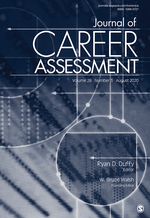
Abstract:
Full-time non-tenure track faculty, commonly referred to as NTT faculty, shoulder much of the teaching load within academic institutions. Self-determination theory (SDT) has shown promise as a conceptual frame for characterizing the relationship between environmental support factors and NTT faculty satisfaction. Full-time NTT faculty were sampled nationwide to investigate an SDT-based model positing basic psychological needs (i.e., volitional autonomy and relatedness) as mediators between six environmental support indices and NTT faculty satisfaction. Structural equation model results showed volitional autonomy and relatedness fully mediated the relationships between the six environmental supports and both indices of faculty satisfaction.Work–Family Balance and Tenure Reasonableness: Gender Differences in Faculty Assessment
Citation:
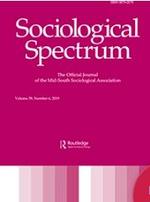
Abstract:
Perceptions of work–family balance and of the reasonableness of tenure expectations are key faculty retention factors. Using the Faculty Job Satisfaction Survey, which includes data from 2,438 tenure-track assistant professors, Rodica Lisnic, Anna Zajicek, and Brinck Kerr explore whether faculty assessment of departmental and institutional support for family influences their perceptions of the reasonableness of tenure expectations.
Results reveal that women are less likely than men to report tenure expectations as scholars are reasonable and that departments and institutions are supportive of family-work balance. Departmental support for family-work balance, caring for an ill family member, satisfaction with family-friendly policies, and workload have the strongest association with reasonableness. Satisfaction with family-friendly policies has a significant relationship with reasonableness of tenure expectations only for faculty with family care responsibilities. These results have implications for family-friendly policies and practices in academia.
Personal and Institutional Predictors of Work-Life Balance among Women and Men Faculty of Color
Citation:

Abstract:
This study examines predictors of perceived work-life balance among women and men faculty of color using data from the Collaborative on Academic Careers in Higher Education (COACHE). Asian American men faculty report higher perceived work-life balance, while African American women faculty report lower perceived work-life balance as compared to other faculty members. Findings from multivariate analyses show that the strongest, most consistent positive predictor of perceived work-life balance was the faculty perception that the institution does what it can to make personal/family obligations and an academic career compatible. The findings offer important implications for institutional and departmental climate and policy.COACHE Summary Tables 2014: Selected Dimensions on Faculty Workplace Climate by Discipline, Race/Ethnicity, and Gender
Citation:
Abstract:
These tables present data from the 2014 Faculty Job Satisfaction Survey focusing on workplace climate, including responses to questions about workload, mentoring, departmental engagement, collaboration, and clarity around tenure decisions. Results are disaggregated by department, race/ethnicity, and gender.Full Text
Download the summary tables
Faculty Job Satisfaction Survey Data Snapshots
Citation:
Abstract:
These charts present data from the 2013 Faculty Job Satisfaction Survey, focusing on results across seven public universities. The charts represent the arithmetic mean, by academic area and by rank and tenure status, of select COACHE survey results. "NTT” faculty are full- time, non-tenure-track faculty. All items were rated by respondents on a five-point scale of satisfaction, agreement, etc. Thus, for example, faculty were asked not to report the number of courses they teach, but to rate their satisfaction with the number of courses they teach.
The Experience of Tenure-Track Faculty at Research Universities: Analysis of COACHE Survey Results by Academic Area and Gender
Citation:
Abstract:
The COACHE Faculty Job Satisfaction Survey is organized around five themes: tenure, nature of the work, policies and practices, climate, culture, and collegiality, and global satisfaction. This analysis looks at survey data for pre-tenure faculty at research universities. In particular, the analysis examined gender differences across twelve academic areas. Mean scores for each of the 83 survey dimension were ranked across all 12 academic areas.
Building a Better Exit Study: A National Effort to Understand Faculty Retention & Turnover
Citation:
Abstract:
In 2016, COACHE partnered with the University of California System to pilot our newest undertaking -- the Faculty Retenion and Exit Survey. This survey is the only multi-institutional study of faculty retention and exit, and examines the costs, conduct, and causes of faculty turnover.
In this webinar, Kiernan Mathews and Todd Benson describe how the survey came to be, and outline some of the initial findings from the pilot study along with some practical recommendations for Academic Affairs administrators.
- «
- 2 of 2
Benchmark Best Practices: Mentoring
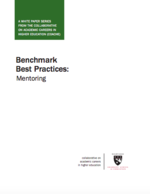
Abstract:
The COACHE surveys of college faculty produce data that are both salient to full-time college faculty and actionable by academic leaders. The survey items are aggregated into 20 benchmarks representing faculty satisfaction. This white paper examines the effectiveness of mentoring within departments, outside departments but at the same institution, and outside the institution.
Mentoring has always been important in the academic workplace. Only in recent years, however, has the practice evolved more widely from incidental to intentional as academic leaders have come to appreciate that mentorship is too valuable to be left to chance.
Many pre-tenure faculty members feel mentoring is essential to their success, but such support is also instrumental for associate professors on their path to promotion. While some institutions rely on the mentor-protégé approach (a senior faculty member formally paired with a junior faculty member), new models encourage mutual mentoring, team mentoring, and strategic collaborations beyond the department.
Benchmark Best Practices: Interdisciplinary Work & Collaboration
Citation:
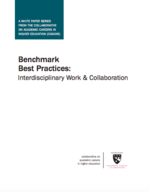
Abstract:
The COACHE surveys of college faculty produce data that are both salient to full-time college faculty and actionable by academic leaders. The survey items are aggregated into 20 benchmarks representing faculty satisfaction. This white paper examines collaboration—within departments, outside of departments but at the same institution, and outside the institution—and attitudes toward interdisciplinary work.
While interest in interdisciplinary work has increased, and this type of work attracts many graduate students and early-career faculty, the academy has not yet fully embraced interdisciplinary work. Unchanged policies, structures and cultures are institutional disincentives, as they are still best-suited to narrower work within disciplines. This includes publication vehicles, multiple authors, peer review, and reward structures.
Benchmark Best Practices: Department Engagement, Quality, and Collegiality
Citation:
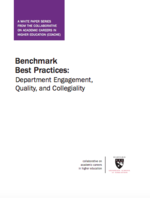
Abstract:
The COACHE surveys of college faculty produce data that are both salient to full-time college faculty and actionable by academic leaders. The survey items are aggregated into 20 benchmarks representing faculty satisfaction. This white paper discusses departmental engagement, quality, and collegiality.
Departmental quality is a function of the intellectual vitality of faculty, the scholarship that is produced, the effectiveness of teaching, how well the department recruits and retains excellent faculty, and whether and how poor faculty performance is handled. While many factors comprise faculty members’ sense of departmental collegiality, COACHE has discovered that faculty are especially cognizant of their “fit” among their colleagues, their personal interactions with colleagues, whether their colleagues “pitch in” when needed, and colleague support for work/life balance. There is no substitute for a collegial department when it comes to faculty satisfaction, and campus leaders—both faculty and administrators—can create opportunities for better informal engagement.

